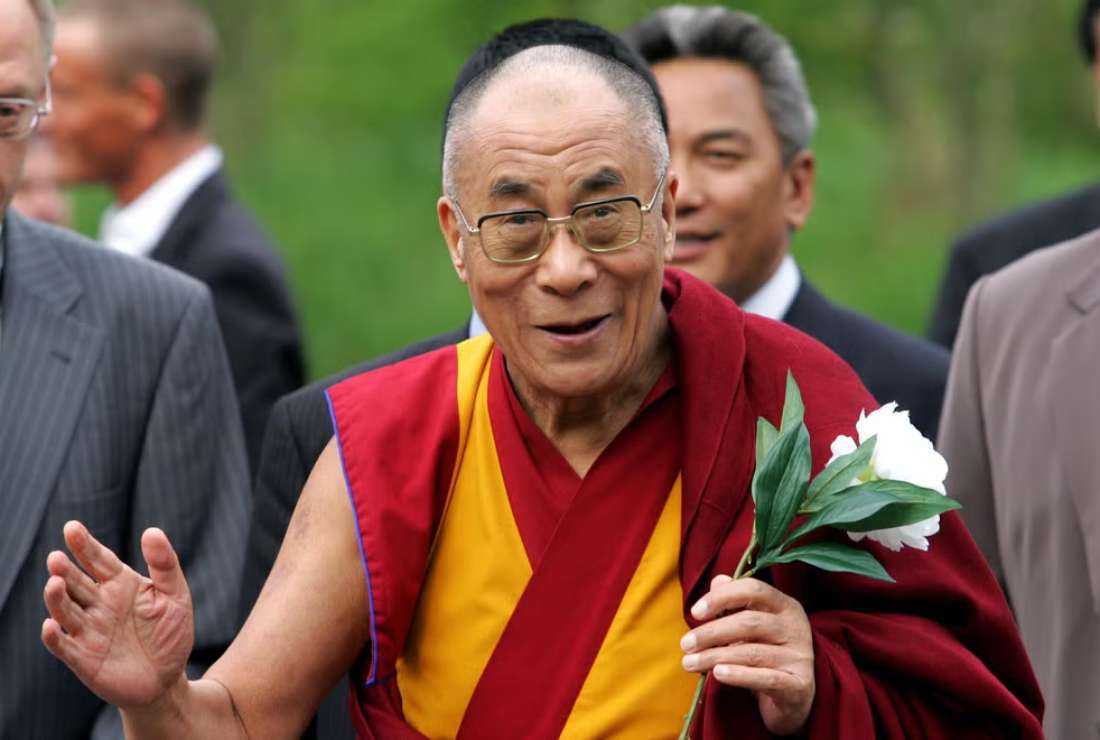Tibetan spiritual leader advocates for greater cultural and religious freedoms for Tibet as a part of China

Tibetan supreme spiritual leader Dalai Lama. (File Photo: AFP/Getty Images)
The pro-Beijing regime in Tibet has asked teachers and students to denounce Dalai Lama, the supreme leader of Tibetan Buddhism, and his alleged separatist activities by pledging allegiance to China.
More than 400 teachers and students from elementary and middle schools in Ngari prefecture were told to pledge their allegiance to China in October, Radio Free Asia (RFA) reported on Nov. 6 referring to multiple sources.
The workshop attendees were told “to confer their allegiance toward the state ideology and condemn separatism and His Holiness the Dalai Lama,” an unnamed source told RFA.
“The attendees were also told to refrain from any religious activities in schools,” the source said.
China’s communist rulers accuse the exiled leader of Tibetan Buddhism of being a separatist, who plots to split the Tibet Autonomous Region and Tibetan-populated areas of western China from the rest of the country.
Following the Chinese invasion and annexation of Tibet in the 1950s, Dalai Lama and his supporters escaped to India and are now based in Dharamshala in the mountainous Himachal Pradesh state.
The 14th Dalai Lama, also known as Tenzin Gyatso, was born Lhamo Thondup in 1935.
The 88-year-old Buddhist leader has repeatedly said he only advocates a “middle way” that accepts Tibet’s status as a part of China and urges greater cultural and religious freedoms for Tibetan people.
Dalai Lama has also consistently urged for language rights guaranteed for ethnic minorities under the provisions of China’s constitution, RFA reported.
The participants for the Beijing-backed workshop included teachers and students from five schools in the Ngari prefecture.
The workshop attendees were urged to refrain from teaching and imparting any education related to religion, a second unnamed Tibetan citizen said.
“The teachers must ensure they teach students to adhere to conferring their allegiance to the state ideology,” the second source said.
The Chinese Communist Party promotes “Sinicization,” a political ideology that aims to impose strict rules on societies and institutions based on the core values of socialism, autonomy, and supporting the leadership of the party, across ethnic and religious communities in China.
China has intensified its efforts to suppress Tibetan culture, language, and religion and to forcibly assimilate the Tibetan identity into the dominant Han-Chinese majority.
Dawa Tsering, director of Tibet Policy Institute, the Central Tibetan Authority – the official think tank of the Tibetan government-in-exile in India – says that the authorities have resorted to harsher moves to get Tibetans to denounce Dalai Lama.
“Recently we had seen a slight ease” but once again authorities started “imposing harsher policies when [they] realized that no matter the effort and repressive policies, it would be impossible to eradicate Tibetan’s faith and reverence for the Dalai Lama,” Tsering added.
China’s constitution guarantees freedom of religion and belief and rights of ethnic minority groups.
However, the Chinese Communist Party has been accused of repeatedly violating religious freedoms and cultural and human rights of ethnic minorities such as Tibetan Buddhists and Uyghur Muslims.

